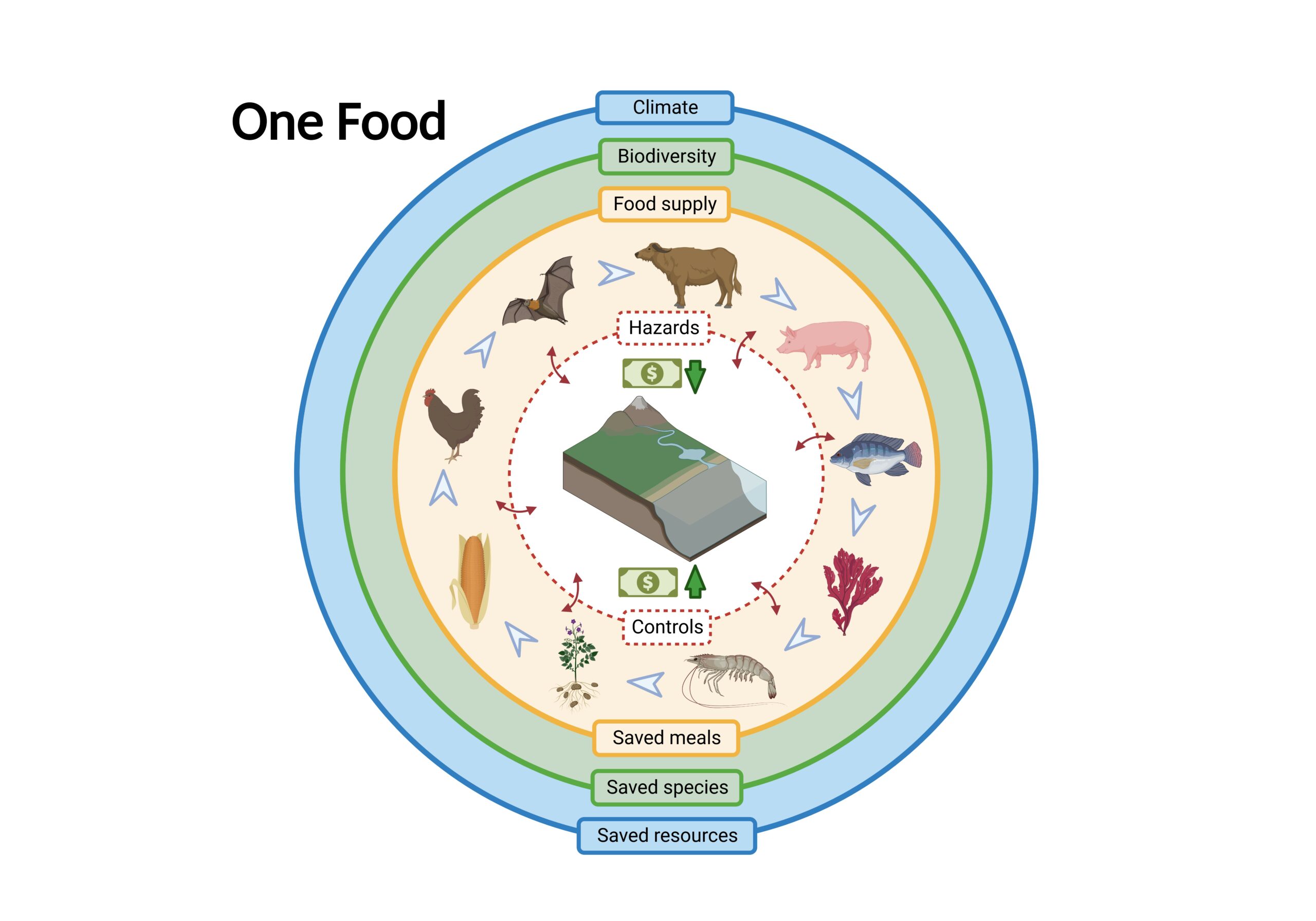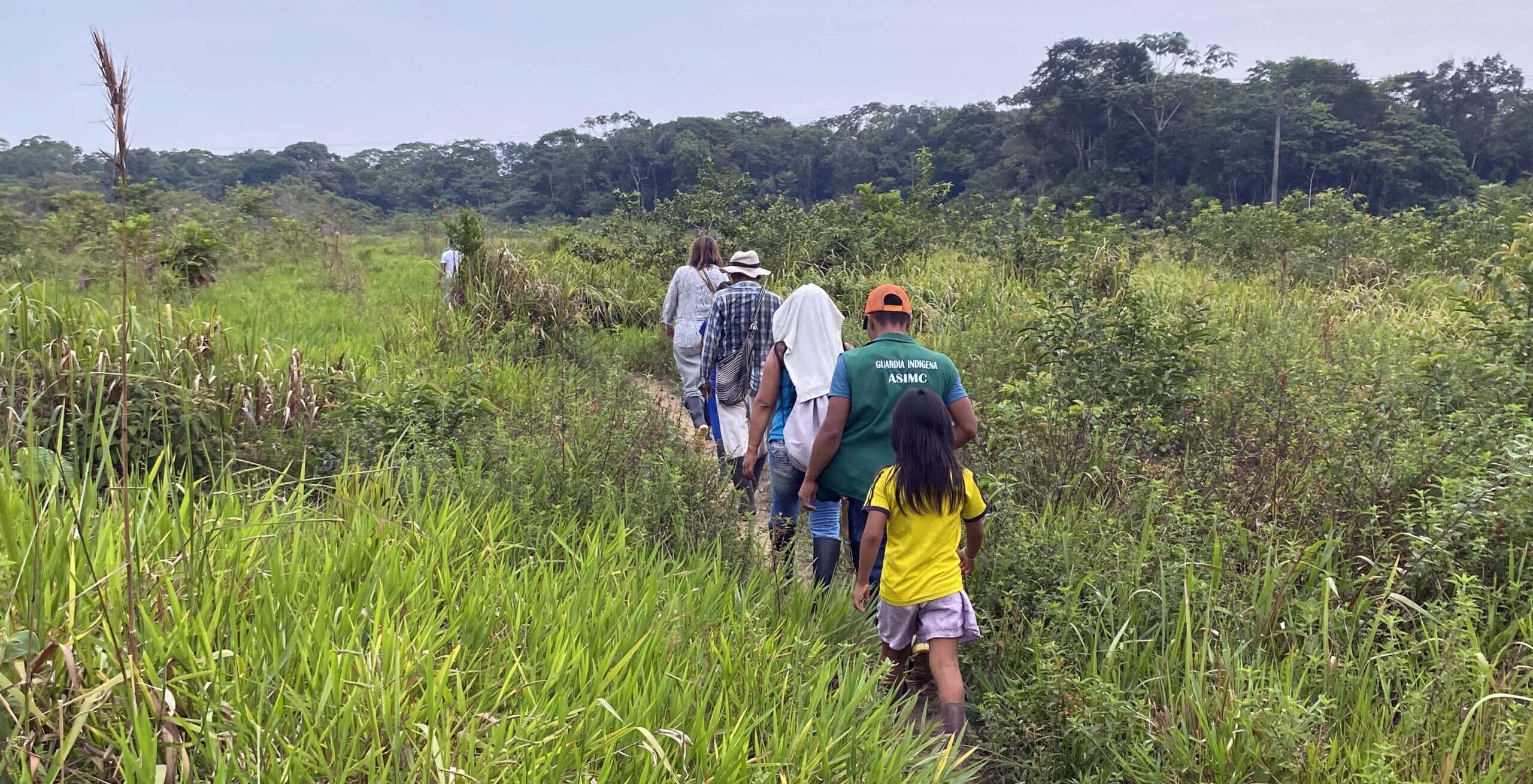Cefas: New Initiatives Tackle the Challenges of Making Food Truly Sustainable
This article was originally published on cefas.co.uk on 9th November 2023
A new paper published today sets out a vision for incorporating the fundamentals of sustainability into the design of entire food systems. The paper, Operationalising One Health for Food Systems, published in the journal One Earth, describes the challenges of producing food that is safe, nutritious, economically viable, equitable and environmentally benign across a country’s food system.
The paper argues that the main challenge to sustainable food systems is in dealing with the many hazards associated with the food supply chain, stretching from those that limit supply – like pests, pathogens or chemical contamination – through to the ways that food production drives environmental degradation, including greenhouse gas emissions or fertilisers that damage river biodiversity.
(Image credit: One Earth, Cell Press)

Hazard control mainly happens inside of individual food sectors like maize crops, beef husbandry or prawn aquaculture, with little attention to how these sectors link and to how the hazards might spread between the sectors. Assessing each hazard individually is also problematic because it will not give the whole picture on their combined impacts on food supply or the environment. Crucially, we also lack the methods to look across all hazards and food sectors, to make informed decisions on which to prioritise.
The answer to this, according to the authors, lies in applying One Health principles to the whole food system. One Health is a concept that aims to optimise the health of humans, animals, plants and ecosystems, with each being equally important. Our paper proposes a ‘One Food’ approach where all food sectors are considered together, incorporating all hazards and the links between them.
The paper is an initiative of the One Food programme, a collaboration between the UK and South African governments, with partners from academia, intergovernmental organisations, industry and NGOs. The programme is developing a food risk tool that combines hazards across food sectors to identify and prioritise intervention strategies. It also examines the policy changes that will be needed to allow a food systems approach to be achieved and how stakeholders can take the movement forward.
Here at Cefas we understand well how land and sea are connected and that the food we produce must balance safety and adequate supply against environmental protection. We are delighted to bring together colleagues from across the food spectrum.
Neil Hornby, Chief Executive of the Centre for Environment, Fisheries and Aquaculture Science (Programme Lead)
This paper sets out our ambition for a future where animal and plant health experts work alongside environmental and social specialists to solve pressing food problems.
Ian Brown, Director of Scientific Services at the UK Animal and Plant Health Agency, the UK programme co-leads
The topic is discussed in the first of the new Cefas Unchatted Waters podcast series, where Cefas’ Chief Scientist, Professor Grant Stentiford and the One Food lead Dr Julie Bremner consider how these principles can be applied to produce safe and sustainable seafood. The programme will present its work in the 2nd One Food Community Forum on the 28th of November 2023 which is open for registrations currently on the One Food Community website. The One Food programme is funded by the Global Centre on Biodiversity for Climate (GCBC) which is a UK Official Development Assistance (ODA) research and development programme that funds research into natural solutions to climate change and poverty.


